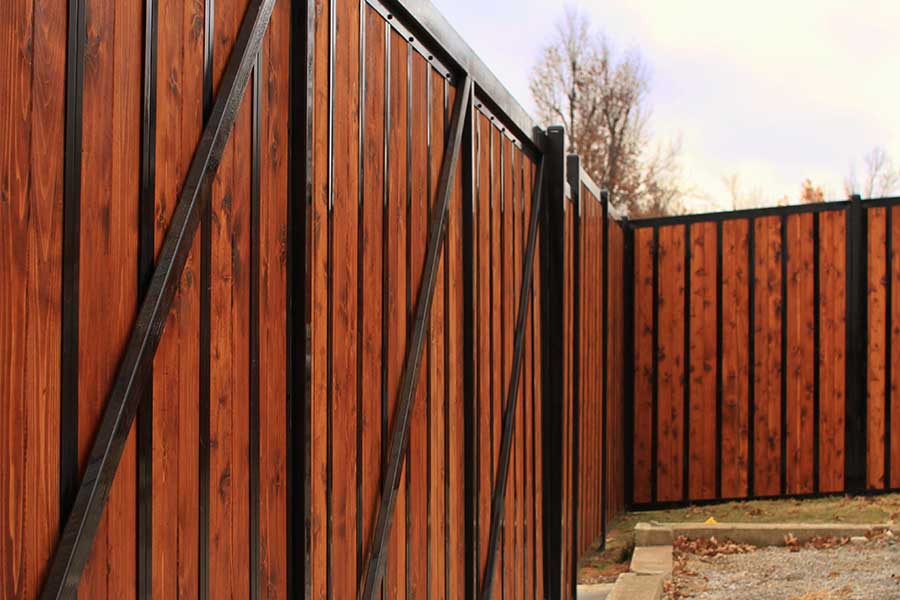All Categories
Featured

Picking the best kind of fence for your property is a substantial choice that can affect both the aesthetic appeals and capability of your room. Whether you're trying to find privacy, security, or merely an attractive feature, there are numerous elements to take into consideration when selecting the suitable fence. Below are some crucial considerations to assist direct your decision-making process.
- Determine the Purpose of the Fencing. The very first step in selecting the ideal kind of fencing is to clarify its purpose. Various fencings offer different features, and recognizing your particular requirements will assist limit your options. Take into consideration the following:
Privacy: If you're looking for privacy, a high and solid fencing such as timber or vinyl will certainly stop prying eyes from seeing into your backyard. Safety: For protection objectives, a strong, high fence made from light weight aluminum or steel can discourage burglars and offer comfort. Aesthetic Appeal: A decorative fencing made from wrought iron, light weight aluminum, or picket-style timber can include beauty and aesthetic interest your home. Pet Dog or Animal Containment: If you need to include pet dogs or animals, a sturdy fence like chain web link or wood might be required to avoid them from getting away. 2. Think about the Material. As soon as you've developed the fence's main objective, it's time to choose the product. Each kind of product includes its own collection of obstacles and benefits. Here are some typical materials to consider:
Timber: Timber fencings are versatile and adjustable, using privacy and a classic appearance. They're optimal for standard homes or rural properties but need routine upkeep to protect against insect, rot, or warping invasion. Vinyl: Vinyl fences are low-maintenance, durable, and available in a range of styles. They will not fracture, warp, or discolor, making them a terrific choice for those who want a durable, convenient fence. However, plastic can be more costly in advance than timber. Light weight aluminum: Aluminum fencings give a smooth, modern-day appearance and are resilient, rust-resistant, and need very little upkeep. Nonetheless, they typically do not offer as much personal privacy as timber or plastic, as the slats are typically spaced apart. Chain Web link: Chain link fencings are frequently utilized for safety or to consist of family pets. They are durable and budget-friendly, but they do not provide much personal privacy or aesthetic allure unless you add slats or personal privacy displays. 3. Consider the Climate and Maintenance Demands. Your area's environment can dramatically affect the life expectancy and maintenance demands of your fencing. If you stay in an area with high humidity or constant rain, materials like timber may require additional like stop rot or mold and mildew development. On the various other hand, vinyl and light weight aluminum fencings are immune to the aspects and need much less upkeep.
Additionally, take into consideration the amount of time and initiative you're prepared to commit to fencing maintenance. Wood fences need regular staining or painting to keep their appearance, while vinyl and light weight aluminum call for much much less maintenance.
- Assume Concerning Toughness and Life-span. Take into consideration how much time you want your fencing to last. If you're looking for a fencing that will last for years with little upkeep, vinyl and aluminum are exceptional choices. While timber fences can last 10-20 years with appropriate care, they may not stand up to the examination of time along with various other materials.
Additionally, consider your budget. Materials like timber and chain web link tend to be even more economical upfront, while vinyl and aluminum tend to come with a greater initial cost however offer lasting toughness.
- Suit the Fence to Your Property Style. The kind of fence you select should match the total feel and look of your property. A well-chosen fence can boost your home's curb charm, while a poorly picked fence can take away from it. As an example:
Standard Houses: A timeless wood picket fencing or a wrought iron fencing works well with older, a lot more typical homes. Modern Residences: For a modern appearance, sleek materials like aluminum or plastic can complement contemporary style. Rural or Farm Characteristics: A wood or wire fence may be perfect for country homes or farms, where practicality is equally as crucial as aesthetics. 6. Check Neighborhood Laws and HOA Standards. Prior to making your last choice, check your local zoning guidelines and any kind of HOA (Homeowners Organization) guidelines to guarantee that your wanted fence complies with height limitations, material needs, and various other local legislations. Some areas have certain regulations about the appearance of fencings, especially in domestic neighborhoods.

Final thought. Picking the best fencing for your home calls for careful consideration of your demands, budget plan, and the design of your home. Whether you're prioritizing personal privacy, protection, or visual allure, there's a fence material and style that will fit your requirements. By considering the variables laid out above, you can make a notified decision and choose a fencing that will enhance the capability and charm of your property for many years to find.
Latest Posts
Recognizing When Your Car Needs Skilled Auto Repair at Montclare Auto Repair
Published en
1 min read
Learn About Exceptional Auto Repair Services in Chicago – Expert Care for Your Vehicle
Published en
1 min read
Boost Your Home's Exterior with Weathercraft's Exterior siding Solutions
Published en
1 min read
More
Latest Posts
Recognizing When Your Car Needs Skilled Auto Repair at Montclare Auto Repair
Published May 24, 25
1 min read
Learn About Exceptional Auto Repair Services in Chicago – Expert Care for Your Vehicle
Published May 23, 25
1 min read
Boost Your Home's Exterior with Weathercraft's Exterior siding Solutions
Published May 22, 25
1 min read